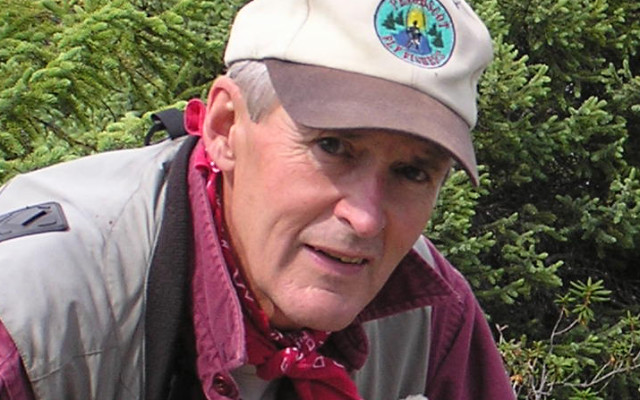
Maine snowmobiling: good and bad
By V. Paul Reynolds
For many Maine winters, weekend camping and ice fishing trips to my favorite North Woods lake helped pass the dark months and brought immeasurable fun and memories for me and my family. To this day, my kids reminisce about these winter outings. When the action was hot, we chased tip ups from one ice hole to another, cooked venison burgers in our ice shack, and – when the fishing was slow – passed the time playing cribbage. In a few weeks, my eldest son will visit our remote camp with his grandson for some ice fishing, my great grandson’s first introduction to hard-ice fishing. He will love it, the circle unbroken.
Our winter camp was 10 miles from plowed roads. So snowmobiles made these winter treks possible. In those early days, snowmobiles were more benign than they are today. My old 12-hp Skidoo was slow, smokey and prone to breakdowns. But it got the job done. It hauled a tote sled full of food, gear, kids and a dog too old to make it on her own. And snowmobile fatalities were practically unheard of.
Not so today. High performance snowmobiles with incredible horsepower go like a NASCAR competitor and, sadly, a few people who were intent on having fun or getting a winter thrill, are operating irresponsibly and killing or maiming themselves or others.
The last few years have seen increasing numbers of snow sled fatalities in Maine. Northwoods Sporting Journal’s snowmobile writer Rod Fraser tells much the same story annually. “This snowmobile season has proven to be deadlier than last year, and that I find to be both heartbreaking and unacceptable. There were seven snowmobiling fatalities in 2018, and as of this writing, we have already had 9 fatalities in 2019 and we still have time to go before the end of the riding season. According to Warden Service and news reports contributing factors in these accidents were excessive speed, inexperience and, in some instances, alcohol consumption.”
Last winter, Maine reported six snowmobile fatalities.
If you are a snowmobile enthusiast, or have someone you care about who is, think about the following, a typical report from the Maine Warden Service following a snow sled fatality.
The Maine Warden Service is investigating Maine’s ninth fatal snowmobile crash. Martha Carroll, age 56, of Brighton, Massachusetts was killed when the snowmobile she was operating crashed into the trees at a high rate of speed on the west shore of Wilson Pond in Wayne at approximately 5:45 p.m., March 2. Carroll was operating her boyfriend’s 2002 Polaris 700 snowmobile on Wilson Pond and wearing a ski-type helmet at the time of the crash. The initial investigation indicates that inexperience, speed and alcohol all appear to be factors in the crash.
The underline in the last sentence was not in the press release. I put it there. Snowmobile writer Rod Fraser, quoted above, wrote this about alcohol and snow sledding: “Studies have shown that increasing blood alcohol content (BAC) is also associated with a decreased reaction time. One study pointed to an average decreased reaction time of just over a tenth of a second, associated with a BAC level of 0.08, the legal limit in the United States. That means that when cruising at 70 miles per hour, a drunk driver would travel for an additional 12 feet before reacting to a hazard!
Folks, these snow sled fatalities really are not accidents. There is a cause and an effect. The same sad, sorry script is repeating itself over and over. Snow sledders, talk to yourselves and those you run with. Sledding is supposed to be an enjoyable, exhilarating and uplifting experience.
The author is editor of the “Northwoods Sporting Journal.” He is also a Maine guide and host of a weekly radio program — “Maine Outdoors” — heard Sundays at 7 p.m. on “The Voice of Maine News – Talk Network.” He has authored three books; online purchase information is available at www.maineoutdoorpublications.com. or www.sportingjournal.com. Contact email — vpaulr@tds.net.